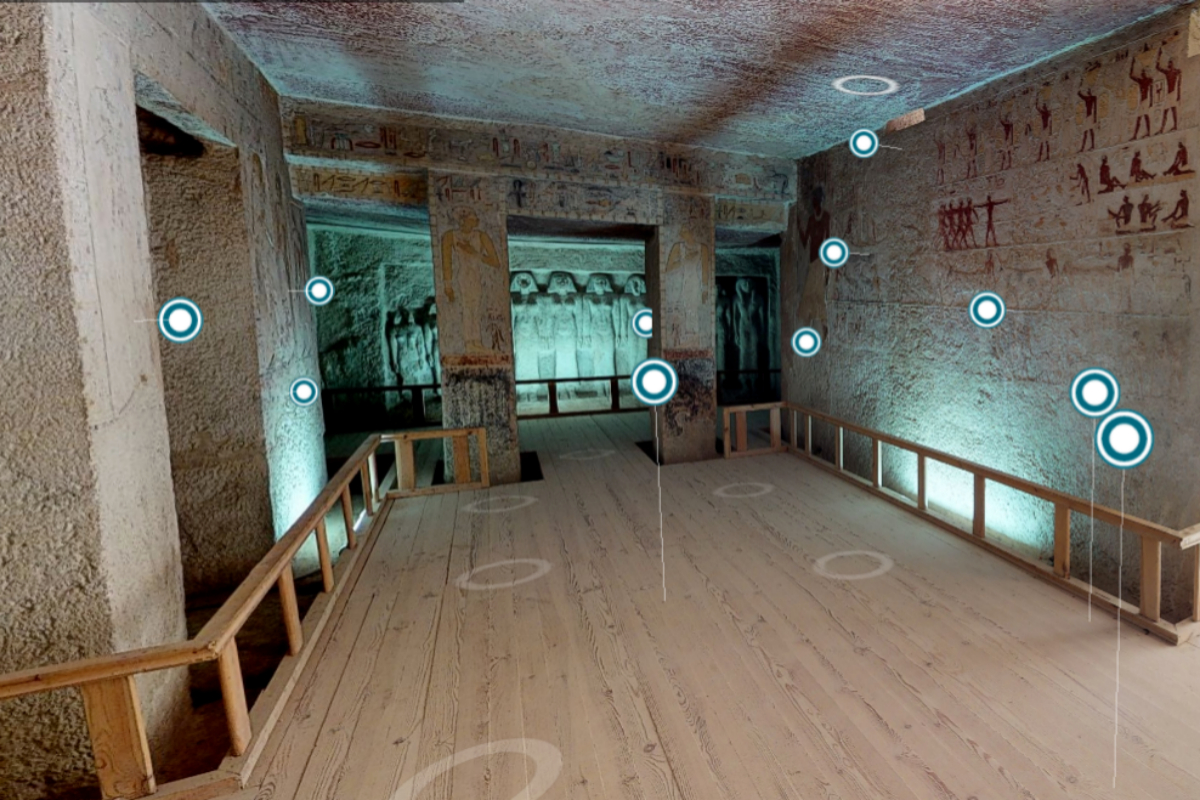For a season, the monuments and sites that record the Pharaonic civilization will remain closed, also reached by the coronavirus health crisis. To please and entertain the legion of admirers that ancient Egypt sparks across the globe, the country's authorities have just launched a series of virtual tours of archaeological jewels.
Every evening, starting at 7:00 p.m. Spanish time, the Egyptian Ministry of Antiquities and Tourism will open a new slit through which to delve into a wonder of ancient Egypt. The chosen monument and the link to the virtual visit will be announced through the ministry's accounts on social networks. Under the motto "Experience Egypt from home", the Egyptian regime wants to be present in the confinement that Covid-19 has forced. Around half of Humanity - some 3.9 billion people - are currently confined to their homes.
The initiative is sponsored by the ministry, with the support of foreign archaeological missions working in the country. "In some cases it is virtual visits to monuments and, in others, the explanation of some museums by Egyptian tour guides," the authorities said in a statement sent to EL MUNDO.
The first of the capsules that hope to animate the quarantine of ancient Egyptian lovers is a virtual itinerary care for the tomb of Menna (TT69), the burial of a high official of the Egypt of the Pharaohs documented more than a decade ago by a team of scientists from the American Georgia State University and the ARCE (Center for American Research in Egypt, for its acronym in English).
The tomb is located on the western bank of ancient Thebes, present day Luxor, 600 kilometers south of Cairo. From the screen, the Internet user can enter the tomb of the nobleman who, among other titles, was "supervisor of the fields of Amun" and inhabited the city during the 18th dynasty (1,450-1050 BC). The hollow excavated in the rock of the Theban necropolis presents a T-shaped plan, with two rooms and a niche as a sanctuary.
The viewer allows you to admire the decoration of the murals in one of the best preserved tombs in the area. The walls show the deceased, sitting or standing, in agricultural scenes linked to his professional work in the Pharaoh's court, watching over the production of grain, from sowing to harvesting and storage. The paintings , which accompany the visitor through the corridor and the ceilings, also present the guardian's wife, Henuttawy, among pictures of splendid offerings, festivals and winks to the afterlife and the desire of the owner of the grave to satisfy his hunger and be in the hereafter.
The second of the journeys proposes discovering the tomb of Queen Meresanj III, granddaughter of Cheops - the pharaoh who built the Great Pyramid of Giza, the last wonder of the ancient world still standing - and the wife of Kefrén. The female found eternal rest in a double mastaba on the Giza plateau, in the cemetery located east of the Great Pyramid.
The grave, found in 1927, was intended for his mother Hetepheres. A research that has led archaeologists to embrace the idea that their death was unexpected. His remains are in the Egyptian Museum in Tahrir. Meresanj III was 1.54 meters tall and died around the age of 50. For millennia, he rested in an underground room decorated with scenes of the queen and the royal family alongside servants, priests, and artisans. The discovery also made it possible to rescue an abundant and highly valued trousseau, from clothing and jewelry to furniture and statues.
With the virtual opening of its treasures, Egypt tries to stay on the map after having signed in 2019 the best year of visits since the revolution that ousted Hosni Mubarak in power in 2011 and inaugurated years of political turmoil. The Egyptian Central Bank acknowledged last week that in 2019 tourism revenue reached $ 13 billion (about 12 billion euros), a record figure, and the number of visitors exceeded 13 million.
The pandemic has cut short the recovery of a key sector for the battered local economy. In February and for weeks, the authorities tried to send the message that Egypt could continue to receive pilgrims until the extension of the health crisis forced them to accept the cancellations.
The country has 1,070 infected and 71 died from Covid-19. A study by researchers at the University of Toronto estimated weeks ago that infections could range from 6,000 to 19,000, casting doubt on the state information.
The regime has enacted a night curfew and international flights have been suspended since the middle of last month. For now, the monuments will continue to be closed until April 15. An impasse that Egypt has taken advantage of to clean and disinfect its tourist icons, starting with the Giza pyramids.
According to the criteria of The Trust Project
Know more- Egypt
- science
- Coronavirus
Pandemic Egypt fumigates pyramids to fight coronavirus
Witnesses to the pandemic in the world. 8Egypt: lies, silence and stoicism against the coronavirus
Coronavirus Decreases the influx to large monuments, theaters are closed and cultural events in Andalusia are canceled

